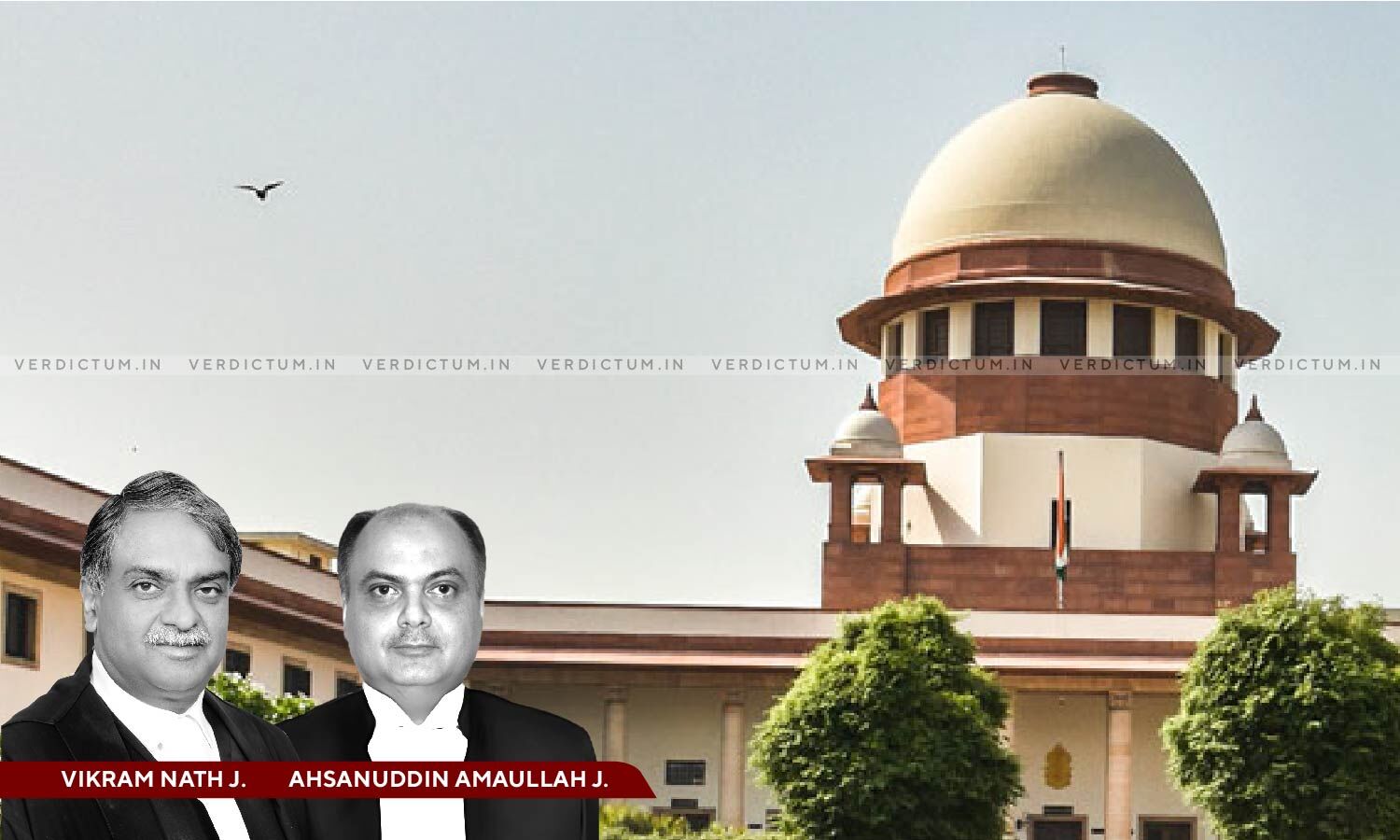Court Ought Not To Have Considered Delay Of 459 Days Without Satisfactory Explanation: SC While Allowing Appeal Of Karnataka State Electronics Corp

The Supreme Court has allowed the appeal of Karnataka State Electronics Development Corporation saying that the High Court ought not to have considered the delay of 459 days without satisfactory explanation.
The Court was dealing with an appeal against the judgment passed by the Division Bench of the Karnataka High Court whereby the appeal of the appellant was dismissed, thereby confirming the judgment of the Single Judge allowing the writ petition of the respondent and dismissing the review petition respectively.
The two-judge Bench of Justice Vikram Nath and Justice Ahsanuddin Amanullah held, “It is true that the appellant had filed repeated review applications both before the learned Single Judge as also the Division Bench, which had resulted into delay in filing the appeal before the Division Bench. The Division Bench ought not to have taken into consideration the delay of 459 days to be without any satisfactory explanation in dismissing the appeal of the appellant.”
The Bench said that the Division Bench failed to exercise its discretion vested under the law in condoning the delay in order to advance justice inter se parties thereby resulting into serious prejudice and financial loss to the appellant corporation which is a public entity.
Advocate Balaji Srinivasan appeared for the appellant while Advocate Surbhi Mehta appeared for the respondent.
The State of Karnataka came up with a policy decision for the purposes of promoting and developing industries related to Electronic & Information Technology within the State. It established Karnataka State Electronic Development Corporation Ltd. as a Non-Profit Organisation for the aforesaid purpose across the State including the Electronic City in Bangalore. Acquisition of land in large amount was made in Bangalore city for setting up an area known as Electronic City. The appellant, vide its 133rd Board Resolution came up with a new selection process for allotment of land in the Electronic City. The respondent was required to commence the project at the earliest and the allotment was made on lease cum sale basis for a period of ten years.
It was further stipulated that upon completion of ten years or on completion of the project, the lease would convert to a sale, subject to fulfilment of all the terms & conditions of allotment and payment of price of land in full as may be finally determined by the appellant. Possession of the land was given to the respondent and a lease cum sale agreement was executed between the appellant and the respondent. The respondent, which was originally a partnership firm, applied for it being converted into a private limited company in 2007 and the appellant issued no objection certificate in that regard. An audit objection was raised and the appellant suffered a loss. The writ petition of the respondent was allowed and intra court appeal of the appellant was dismissed.
The Supreme Court in view of the above facts observed, “Four judgments relied upon by the respondent regarding filing of review petitions have no application on facts to the present case. … Once the respondent had made a request for change of use of the allotted plot from an IT sector industry to a Hospitality sector, it would amount to a fresh transaction and, therefore, the rate determined in the 141st Meeting would be fully applicable.”
The Court noted that the demand raised by the notice does not suffer from any infirmity and that the respondent is liable to pay the demand as per the notice.
Accordingly, the Apex Court allowed the appeal and set aside the judgment of the Division Bench.
Cause Title- Karnataka State Electronics Development Corporation Ltd. v. Kumaon Entertainment and Hospitalities Pvt. Ltd. (Neutral Citation: 2023INSC871)


